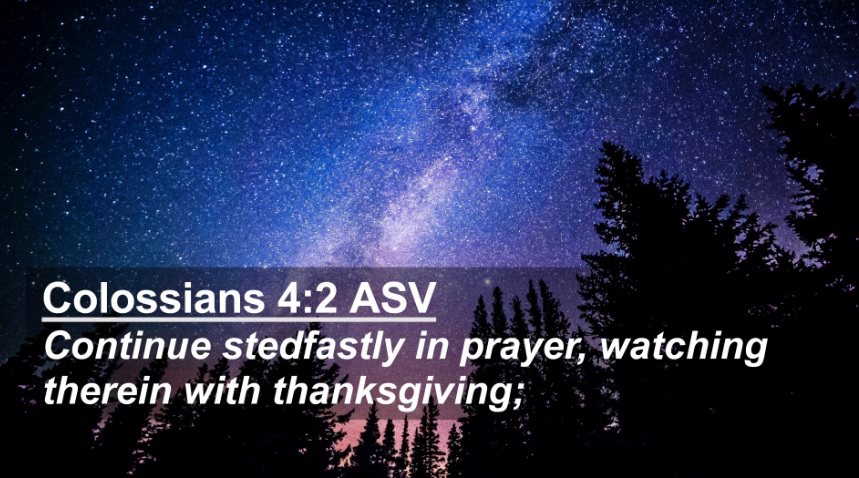“Go therefore and make disciples of all the nations…teaching them to observe all that I commanded you; and lo, I am with you always, even to the end of the age” (Matthew 28:19-20, NASB).
——————–
Contents:
1) Reflections on Psalm 2: The Son Rules (Joe R. Price)
——————–

-1-
Reflections on Psalm 2: The Son Rules
Joe R. Price
Synopsis: The divine proclamation of God’s Son as His Anointed King prompts Christians to remain loyal to Christ when earthly rulers dishonor Him by denying His rule.
——————–
Introduction
In unstable times, saints of God should recall settled veracities:
I will declare the decree: The Lord has said to Me, “You are My Son, Today I have begotten You. Ask of Me, and I will give You the nations for Your inheritance, and the ends of the earth for Your possession. You shall break them with a rod of iron; You shall dash them to pieces like a potter’s vessel” (Ps. 2:7-9, NKJV).
America has just passed through a tumultuous election cycle. At this writing, some outcomes are facing unresolved court challenges. Citizens experience uncertainty, doubt, disappointment, and discouragement. What will come from our next leaders? Whose rule will prevail from sea to shining sea: The President? The Congress? The Supreme Court? We, the people? The Bible assures us that regardless of who rules earthly kingdoms, Jesus Christ is King of kings and Lord of lords, and He rules over the kings of the earth (1 Tim. 6:15; cf. Matt. 28:18; Rev. 1:5).
Also, at this writing, we continue to pass through the throes of the Covid-19 virus. Death tolls continue to rise. Hospitals are nearing capacity. Measures are mandated to stop the spread and lessen its impact. Businesses, livelihoods, families, and churches have not been spared. False points of friction occur between the rule of civil government and the rule of God. Christians and churches face the challenge of deciding what to render to Caesar and what to render to God (Luke 20:20-26). Faithless rulers and lawless citizens will continue to test our resolve to “obey God rather than men” (Acts 5:29).
When seas of doubt churn and toss nations with doubt, discouragement, and dread, God’s sovereignty over the nations by His Christ assures and secures our faith. God “rules in the kingdoms of men,” and mortals do not overthrow His purposes (Dan. 4:25, 32, 34-35). Divine Providence protects and preserves the righteous through momentary trials and tears. Our hope in the promises of God in Christ anchors our souls (Ps. 37:25; Matt. 6:25-34; Heb. 6:16-20).
God’s Anointed King Is His Son
Psalm 2 confirms our faith in God’s abiding care and the rule of His Christ while we face the rising challenges of secularism, humanism, skepticism, and atheism, both in the USA and around the world. This Messianic psalm is a prophetic call to the nations anticipating the rule of God’s Anointed. God’s Anointed King is none other than His Son, to whom God would give the nations for an inheritance (vv. 2, 6-8). Although opposed and rejected by Gentiles and Jews, God’s purposes prevail, gloriously fulfilled in the exaltation of Jesus Christ, the Son of God (vv. 6-9). Earthly rulers are warned of divine wrath if they fail to honor the Son and trust the Lord God (vv. 10-12). Neither Gentile rulers nor Jewish leaders would prevent God from crowning His Son as King (Acts 4:23-28). Ruling in righteousness, the Son blesses those who honor and trust Him while punishing the wicked.
Psalm 2 paints a portrait of Christ as King on God’s “holy hill of Zion” (v. 6). The resurrection of Jesus and His subsequent ascension and exaltation at God’s right hand fulfilled this prophetic pronouncement (Dan. 7:13-14; Eph. 1:20-23). Today, Jesus, the Son of God, rules as “Lord and Christ” (Acts 2:36).
The expectation of a future earthly kingdom corrupts the nature of the King and His kingdom (Luke 17:20-21; John 18:36; Col. 1:13-14). This false doctrine necessarily rejects the fulfillment of Psalm 2 that is announced in the gospel by the resurrection and ascended exaltation of Jesus. Either Jesus rules as King today in fulfillment of Psalm 2, or He does not. If Jesus is King now, then earthly kingdom expectations are false (Mark 9:1). If Jesus is not yet King, then Psalm 2 remains unfulfilled. However, such a conclusion means that the multiple New Testament declarations stating this psalm’s fulfillment in Christ are false (Acts 4:25-28; 13:32-33; Heb. 1:5; 5:5).
Psalm 2:7-9 prophetically announces the Son of God’s rule as King. The New Testament fulfillment of this psalm assures our faith and strengthens our resolve to steadfastly serve Christ, confident that the Son continues to reign in these troublesome times.
God’s Son Rules Today as King
God Declared the Rule of His Son by Raising Him from the Dead (v. 7).
Another psalm records the Lord’s determination that His Son would rule amid His enemies (Ps. 110:1-2). To rule is to “have dominion, prevail against, reign” (Strong, 7287). Ruling power implies rank and the exercise of authority due to that rank. The rule of God’s Christ rests on the fact that He is God’s Son. He has been given power and might to command, enforce, and judge humanity (Matt. 28:18; John 5:26-27).
The resurrection of Jesus from the dead is the day when God definitively declared that Jesus is His Son (v. 7). God’s decree is acknowledged by His Anointed, “Today I have begotten you” and fulfilled when Jesus was raised from the dead. With His resurrection, Jesus was brought forth by God, “declared to be the Son of God with power. . . by the resurrection from the dead” (Rom. 1:4). The resurrection of Jesus convincingly and conclusively fulfilled Psalm 2:7 (Acts 13:32-33).
God Gave His Son Rule over the Nations and Possession of the Entire Earth (v. 8).
Christ’s resurrection identified Him as the Son of God, the King, who received the nations as His inheritance. His ascension and exaltation at God’s right hand secured His authority as King. By God’s mighty power,
He raised Him from the dead and seated Him at His right hand in the heavenly places, far above all principality and power and might and dominion, and every name that is named, not only in this age but also in that which is to come. And He put all things under His feet, and gave Him to be head over all things to the church, which is His body, the fullness of Him who fills all in all (Eph. 1:20-23).
The righteous rule of Christ comforts those who willingly serve Him in the day of His power (Ps. 110:3). Christians persevere through life’s trials and uncertainties, knowing that, come what may, Christ’s throne prevails and endures (Heb. 1:8-13). He rules over the affairs of nations (Acts 17:24-26), sin and death (Acts 13:32-39; 1 Cor. 15:24-26, 54-57), and the house of God, the church (Heb. 5:5; Eph. 1:22-23; Col. 1:18). Our trust in Him is not in vain.
God Gave His Son the Authority to Bless Righteousness and to Judge Evil (v. 9).
Jesus has been given “all authority” over “all flesh” both to provide eternal life and to execute eternal punishment (Matt. 28:18; John 17:2-3; 5:21-23). Every benevolent ruler and every despot, every unbiased judge and every partial jurist—all are under (and answer to) the authority of Jesus Christ, the King.
Behold the severity of God against those who rebel against His Son. The King will break them with the rod of divine wrath like one breaks pottery (v. 9). Consider this description of the “King of kings and Lord of lords” in the book of Revelation, as “in righteousness, He judges and makes war” against His enemies: “Now out of His mouth goes a sharp sword, that with it He should strike the nations. And He Himself will rule them with a rod of iron. He Himself treads the winepress of the fierceness and wrath of Almighty God” (Rev. 19:11, 15). Psalm 2:9 is the prophetic anticipation that God’s King is powerful to judge the wicked and defeat every foe. Anticipating the King’s just wrath is a proper and adequate incentive to honor Him (Ps. 2:10-12; Rom. 2:1-6).
Conclusion
God anointed and brought forth His Son to be King over the nations. Resurrected from the dead, Jesus is exalted on David’s throne at God’s right hand as “Lord and Christ” (Acts 2:30-36). By the word of the gospel, Jesus Christ gives eternal life to the righteous and brings judgment upon the wicked (John 12:48-50; 5:28-29). Praise God that His King is exalted on high!
Sources
Strong, James. A Concise Dictionary of the Words in the Greek Testament and The Hebrew Bible. Bellingham, WA: Logos Bible Software, 2009.
— Via Truth Magazine, Volume 65, No. 1, January 2021
https://truthmagazine.com/kindle/2021/2021-01-jan/08_Monthly_Theme_Lesson_04.htm
——————–
The Steps That Lead to Eternal Salvation
1) Hear the gospel — for that is how faith comes (Rom. 10:17; John 20:30-31).
2) Believe in the deity of Jesus Christ, the Son of God (John 8:24; John 3:18).
3) Repent of sins. For every accountable person has sinned (Romans 3:23; Romans 3:10), which causes one to be spiritually dead (Ephesians 2:1) and separated from God (Isaiah 59:1-2; Romans 6:23). Therefore, repentance of sin is necessary (Luke 13:5; Acts 17:30). For whether the sin seems great or small, there will still be the same penalty for either (Matt. 12:36-37; 2 Cor. 5:10) — and even for a lie (Rev. 21:8).
4) Confess faith in Christ (Rom. 10:9-10; Acts 8:36-38).
5) Be baptized in water for the remission of sins (Mark 16:16; Acts 2:38; 22:16; 1 Pet. 3:21). This is the final step that puts one into Christ (Gal. 3:26-27). For from that baptism, one is then raised as a new creature (2 Cor. 5:17), having all sins forgiven and beginning a new life as a Christian (Rom. 6:3-4). For the one being baptized does so “through faith in the working of God” (Col. 2:12). In other words, believing that God will keep His word and forgive after one submits to these necessary steps. And now as a Christian, we then need to…
6) Continue in the faith by living for the Lord; for, if not, salvation can be lost (Matt. 24:13; Heb. 10:36-39; Rev. 2:10; 2 Pet. 2:20-22).
——————–
Tebeau Street
CHURCH OF CHRIST
1402 Tebeau Street, Waycross, GA 31501
Sunday: 9 a.m. Bible Classesand 10 a.m. Worship Service. Congregational Song Service: 5 p.m. for every first Sunday of the month.
Wednesday: 7 p.m. Bible Classes
evangelist/editor: Tom Edwards (912) 281-9917
Tom@ThomasTEdwards.com
https://thomastedwards.com/go/all.htm (This is a link to the older version of the Gospel Observer website, but with bulletins going back to March 4, 1990.)





